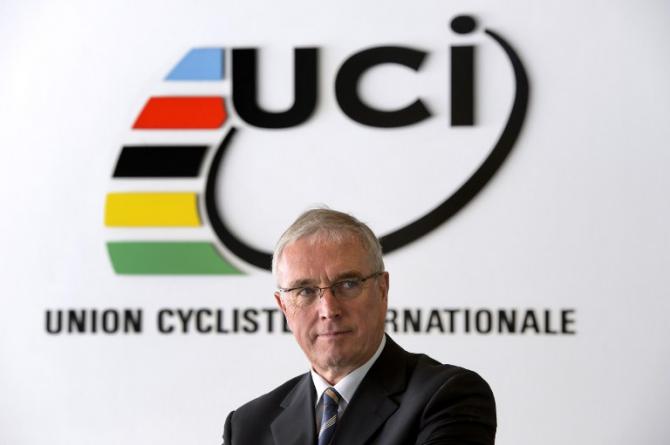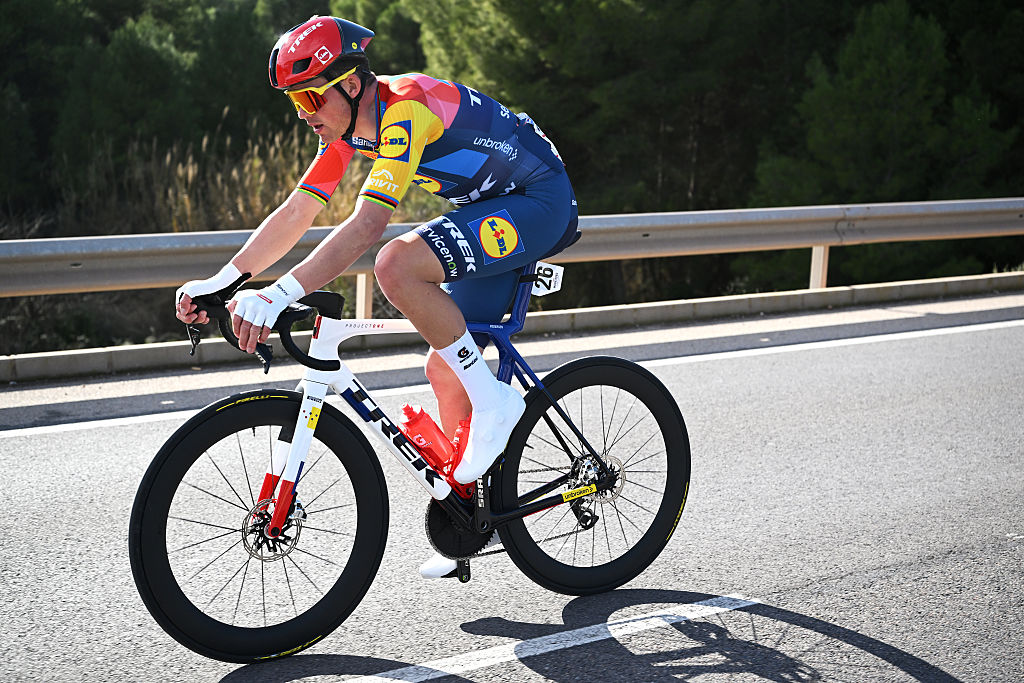UCI reject calls for a cycling-only Truth and Reconciliation Commission
McQuaid defends the UCI as anti-doping helpline is launched
The latest race content, interviews, features, reviews and expert buying guides, direct to your inbox!
You are now subscribed
Your newsletter sign-up was successful

The UCI has hit back at calls for a Truth and Reconciliation Commission to be incorporated into the ongoing UCI Independent Commission investigation, claiming that any amnesty for individual confessions would constitute a violation of the WADA Anti-Doping Code and would have limited effect because governing bodies and police could still pursue athletes who admit to doping.
McQuaid: Change Cycling Now "not a part of cycling"
Interview: Jaimie Fuller, Change Cycling Now
McQuaid: All I've done since I became president is fight doping
UCI reacts to reports that Armstrong could testify against officials
Anti-Doping agencies refuse to join UCI Independent Commission
Independent Commission urges UCI to agree to Truth and Reconciliation process
The UCI Independent Commission members have called for the UCI to change their terms of reference for the wider good of professional cycling and in an attempt to convince the World Anti-Doping Agency (WADA), the US Anti-Doping Agency (USADA) and the Change Cycling Now (CCN) group to contribute to their work.
The UCI stated their case in a long press release, suggesting it would be willing to help WADA fund and develop a truth and reconciliation process covering all sports.
"If WADA is serious about uncovering the full extent to which modern science and the limited methods of detection available to sporting bodies and anti-doping authorities (including itself) have prevented doping, it should establish a Truth and Reconciliation Commission. The UCI, for one, would be happy to participate in such a process and contribute to its funding," the press release reads.
The UCI's often cozy and controversial relationship with Lance Armstrong has come under renewed scrutiny as the Texan's reported TV confession is close to airing. The New York Times has reported that Armstrong may be ready to testify against UCI officials about their involvement with doping in cycling.
The UCI has tried to defend its track record by claiming that even WADA or USADA failed to catch Armstrong via anti-doping controls.
"USADA has asserted that Lance Armstrong and the USPS team ran the most sophisticated and professionalised doping programme that sport has ever seen. Certainly, WADA tested Lance Armstrong many times during his career and failed to find any proof of doping. USADA, too, tested Armstrong many times and similarly failed. We all had access to the same test results – and they too must have formed the view that there was an insufficient basis to pursue a doping violation against Lance Armstrong," the press release reads.
The latest race content, interviews, features, reviews and expert buying guides, direct to your inbox!
"There is no dispute, therefore, that we are talking about doping violations that were difficult, if not impossible, to detect on the basis of the existing science and the limited methods at the disposal of anti-doping authorities. Unlike the national criminal authorities, the UCI does not have the power to carry out searches of the rooms or vehicles of athletes, nor compel riders to give evidence before a Grand Jury under the threat of criminal prosecution for perjury. The turning point in USADA’s investigation came only after it was able to collect evidence under penalty of perjury following the federal criminal investigation."
UCI hotline
UCI President Mr Pat McQuaid publicised the UCI's efforts to fighting doping when announcing the launch of a 24-hour confidential anti-doping helpline for professional riders.
The free helpline will take calls in English and French and is for all athletes in the UCI Registered Testing Pool as well as any professional cyclists taking part in UCI competitions. The calls will be recorded and, depending on their nature, forwarded to specialists in the legal, anti-doping and medical fields, who will decide what follow-up action should be taken.
“The integrity of cycling is at stake. We have established this helpline to encourage the sport’s professionals to come forward and reveal, in the strictest confidence, anything they know about doping practices within the peloton,” McQuaid said in the press release, preferring to look to the future than consider to his responsibilities of the past.
“As some of our top riders have strongly attested in media reports, today’s sport is totally different from how it was before. So we are making good progress.”
“When I became President of the UCI in 2005, I declared that the fight against doping was one of my overriding priorities. Doping is a culture which existed in our sport for decades, so we can only truly banish doping from cycling – and indeed in all sports – by completely eradicating that culture and changing it into a culture of ‘anti-doping’. Changing to this ‘anti-doping’ culture can only be done through education, prevention and by being more vigilant about the entourage of athletes – as well as at the same time offering them more support, which is what this helpline does.”
The helpline number, which can be accessed from anywhere in the world, is +800 8884 8884.

